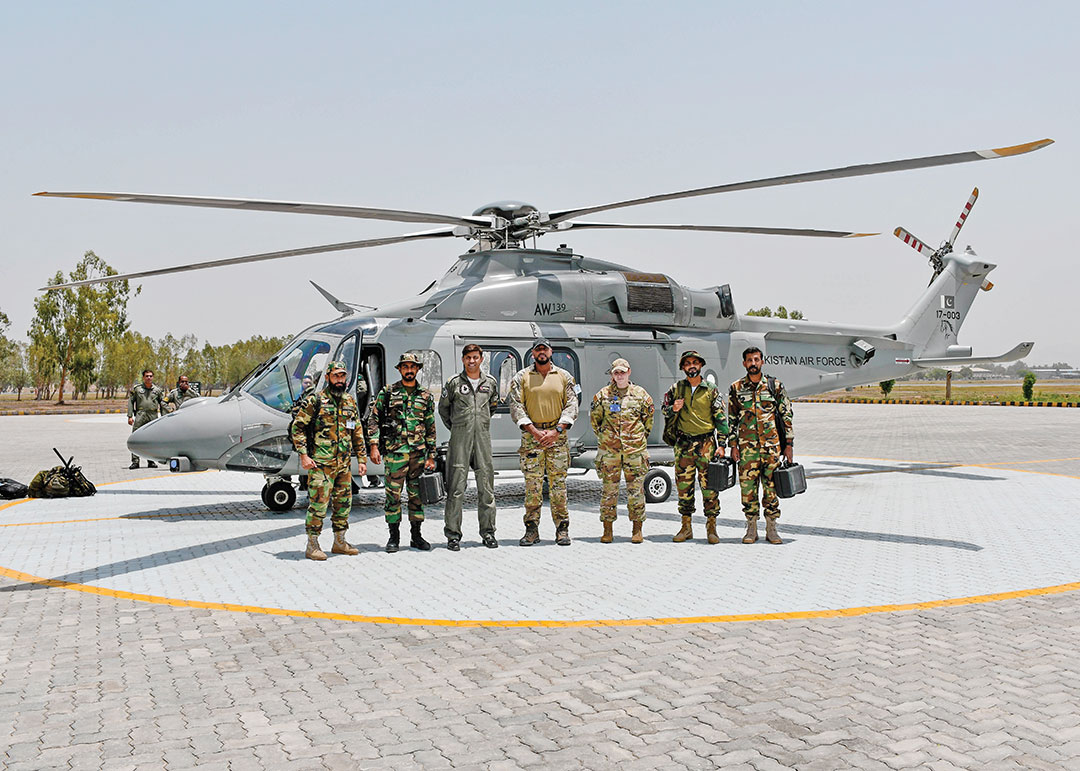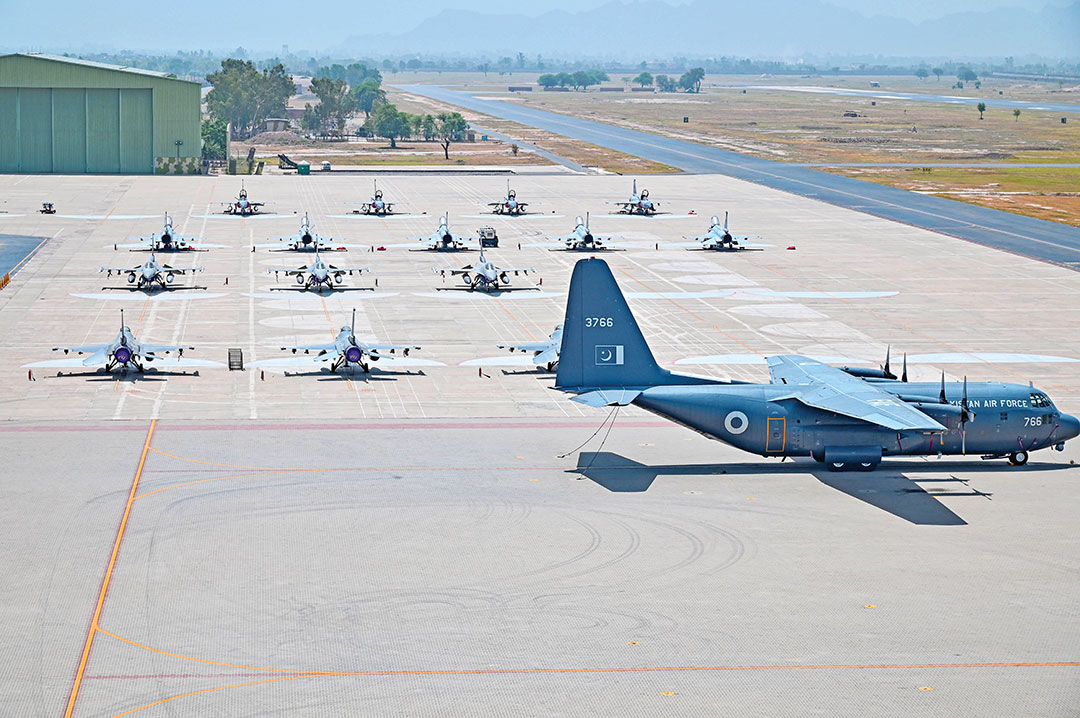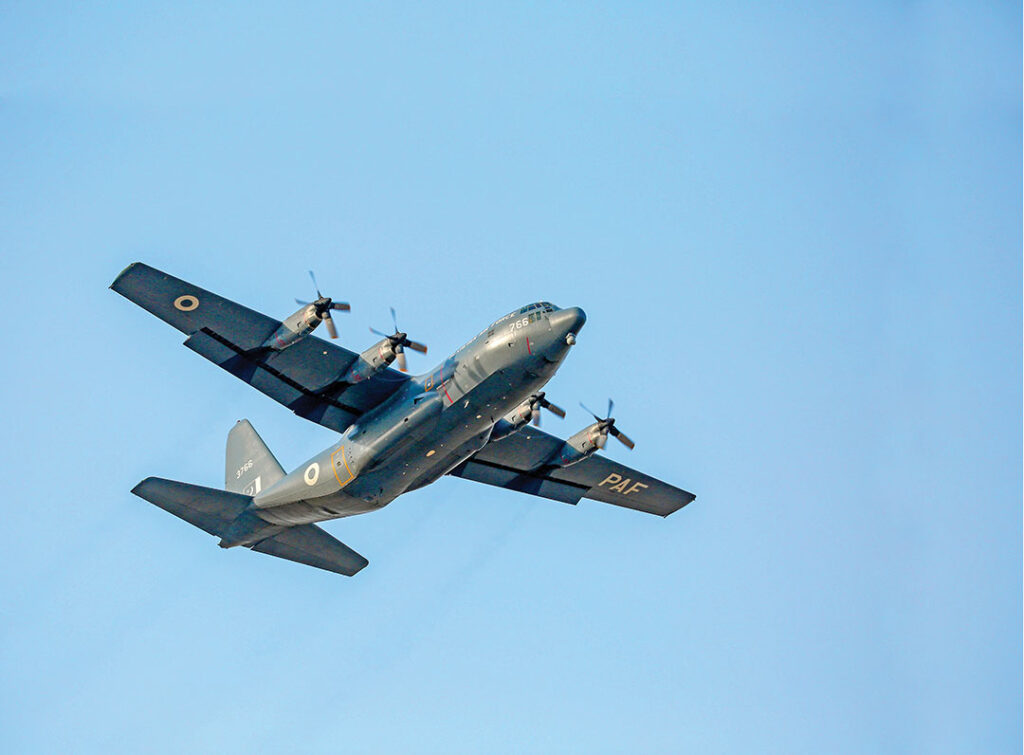Article and Photos by UNITED STATES AIR FORCES CENTRAL
F-16 Fighting Falcons from the Pakistani and U.S. Air Forces softened the ground with a barrage of missiles while attack helicopters carrying Pakistani and U.S. special operations troops infiltrated a terrorist base. Circling overhead, intelligence, surveillance and reconnaissance platforms delivered targeting coordinates to the attacking forces for a successful completion of the mission.
Falcon Talon, a Pakistani-U.S. field training exercise held for the fifth time in June 2024 at Mushaf Air Base in Pakistan, let the forces integrate with one another on operations deemed vital for both countries.
In addition to counterterrorism raids, troops trained in firefighting, explosive ordnance disposal, airbase security, medical care and a method of calling in airstrikes known as joint terminal attack control. What began as classroom instruction moved outdoors for tactical scenarios simulating real-world events.
Airmen from across the U.S. Central Command area of responsibility deployed to Pakistan in support of Falcon Talon. Air Mobility Command’s C-17 Globemaster III aircraft delivered passengers and cargo followed by the arrival of U.S. Air Force F-16 Fighting Falcons from the 510th Expeditionary Fighter Squadron normally based in Italy.
“Exercise Falcon Talon 2024 has been a distinctive opportunity for the 510th Expeditionary Fighter Squadron to collaborate with our Pakistani Air Force partners and enhance our skills both in the air and on the ground,” Squadron Commander Lt. Col. Leo Moore said.
U.S. Airmen specializing in firefighting bonded with the Pakistan Air Force Fire Department to conduct drills to extract injured pilots from their aircraft and reduce fire hazards from fuel and munitions after rough landings.

They exchanged knowledge and held a friendly firefighter competition at the end of the exercise to test the new skills they had learned over the course of Falcon Talon.
“The impact has been immeasurable but positive; some of the small details have received extreme positive attention and many of our suggestions or methods of doing things have already begun to gain traction,” said U.S. Air Force Master Sgt. Jonathan Campos, squadron fire department chief. “These exchanges not only help us showcase our expertise, but the personal relationships and bonds created and sense of community is palpable after such exercises.”
Security teams from the Pakistani and U.S. air forces teamed up to provide round-the-clock airfield protection.
“The biggest takeaway is the exchange of differences in the manner in which we believe security should be accomplished, all while merging new ideas with the thought process of their security measures already in place,” U.S. Air Force Tech. Sgt. Kevin Burk said.
A two-person medical team consisting of a medical technician and a flight surgeon deployed to support the exercise. Medical personnel not only treated members for minor concerns during the exercise, but also coordinated and completed drills to mimic responses to crashed aircraft. U.S. medics also accompanied a Pakistan Air Force flight surgeon to a local hospital for a simulated mass casualty event.
“Pakistan Air Force has good medical knowledge, and we shared what we have learned and demonstrated how to improve exercises to help better simulate a real-world event,” said U.S. Air Force Staff Sgt. Brian Sanders, a medical technician who traveled to Pakistan for the exercise.
U.S. Air Forces Central’s Air Warfare Center deployed a joint terminal attack control instructor to conduct academic discussions on airspace control authority, coordinated attacks, sensor management and enhanced targeting. These troops displayed their skills at the Falcon Talon’s culminating counterterrorism event with air support.

“Subject matter expert exchanges are crucial for ensuring interoperability and fostering trust in our allies’ abilities,” said U.S. Air Force Tech. Sgt. Brandon Tatum of the Air Warfare Center. “By working closely together, we can better understand each other’s capabilities, enhance our coordination, and improve the overall effectiveness of our joint missions. This collaboration strengthens our mutual defense strategies and readiness.”
The Pakistan Air Force hosts Falcon Talon every year to build on the crucial relationship between the two nations and advance mutual security in the region. U.S. Air Forces Central works regularly with regional partners during event scenarios and real-world operations to strengthen security cooperation against aggressors in the region.
“The enduring partnership between our nations remains critical for the security of the region as the U.S. continues to stand with Pakistan in tackling the most pressing global and regional challenges, as we have since our mutual defense assistance agreement in 1954,” said U.S. Air Force Lt. Col. Nicholas Gardner, chief of operations for Falcon Talon 2024.
“Falcon Talon 2024, 70 years later, sustains our partnership by building peace, security and stability. Falcon Talon sharpens our Airmen’s lethality. We look forward to working shoulder-to-shoulder in maintaining aircraft, protecting our Airmen, and building our bonds to last for another 70 years.”

